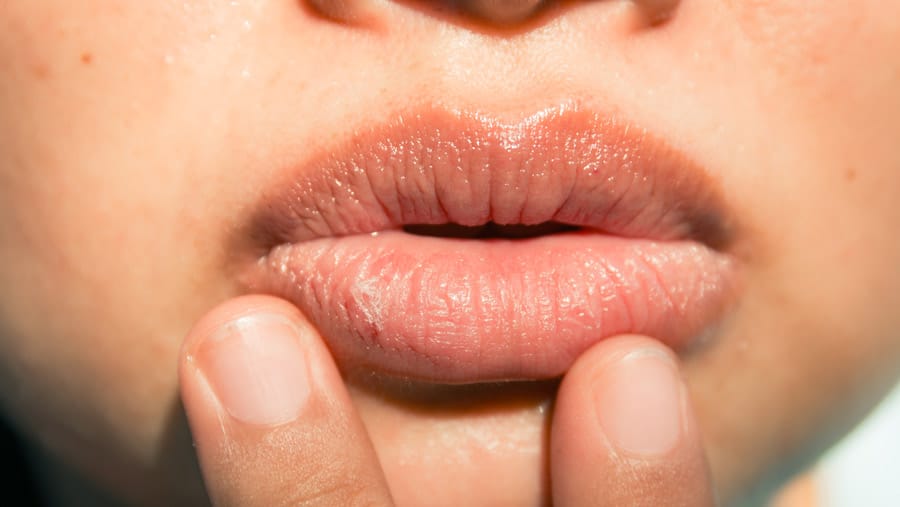What is Dry Mouth?
Dry mouth, marked by insufficient saliva production, causes discomfort with sensations of stickiness, parchedness, or a frequent need to swallow saliva
Saliva, crucial for oral health, serves as the primary defence against tooth decay and plays a vital role in maintaining well-being of both soft and hard tissues in the mouth. It washes away debris, neutralizes acids produced by oral bacteria, and provides disease-fighting substances, thereby acting as a frontline defence against microbial invasion.
Various factors such as aging and certain medical treatments can contribute to the development of xerostomia. Saliva not only aids in digestion through its enzymatic content but also enhances taste perception, facilitates chewing and swallowing, and overall contributes to oral and general health. The consequences of reduced saliva production and persistent dry mouth extend beyond mere discomfort, potentially impacting dental health, appetite, and the enjoyment of food.
Signs of Dry Mouth
A dry mouth can result from insufficient saliva production, posing risks to oral health, including tooth decay. It's not just uncomfortable; it increases the risk of cavities.
If you experience dry mouth at night, some noticeable morning signs may include:
A sticky feeling in your mouth
Thick or stringy saliva
Bad breath
Dry or sore throat
Cracked or chapped lips
Mouth sores
Altered sense of taste
Causes of Dry Mouth at Night
There are several reasons why you might be experiencing dry mouth at night, ranging from simple lifestyle factors to underlying medical conditions. The occasional nighttime dry mouth may result from dehydration, but age, medical conditions and medications often contribute to the irritating symptoms. The organisation Mayo Clinic reports that many prescription drugs like muscle relaxants, high blood pressure and anxiety medications, and antihistamines reduce saliva flow.
Dry mouth is also associated with diabetes and the autoimmune disease Sjogren's syndrome. Cancer treatment, such as chemotherapy and radiation, can change or damage the salivary glands, as can nerve damage to the head and neck area.
Other causes can include:
Mouth breathing: Breathing through the mouth while sleeping due to nasal passage congestion or obstruction can dry out the mouth.
Sleep apnea: People with untreated sleep apnea, a condition that disrupts breathing and sleep, tend to breathe through their mouth at night, which dries the mouth.
Ageing: Salivary production naturally decreases with age, making dry mouth more common in older adults.
Dehydration: If you haven't been drinking enough water throughout the day, the body will conserve fluids, including saliva, leading to a dry mouth at night while sleeping.
Tobacco and alcohol use: Smoking and chewing tobacco, and even drinking alcohol, can worsen dry mouth symptoms.
Lifestyle and Home Remedies For Dry Mouth at Night
Implementing lifestyle adjustments and home remedies tailored to individual causes provides the best path to manage frustrating nighttime dry mouth symptoms.
Sip water, sugar-free drinks, or suck on ice chips throughout the day to moisten your mouth.
Chew sugar-free gum or suck on sugar-free hard candy to stimulate saliva flow.
Use oral rinses made for dry mouth to help moisten your mouth and maintain oral hygiene.
Breathe through your nose instead of your mouth. Seek treatment for snoring if it causes you to breathe through your mouth at night.
Use a bedroom humidifier to add moisture to the air while sleeping.
Apply lip moisturiser to soothe dry, cracked lips.
Refrain from using mouthwash that contains alcohol, as it can be drying. Choose alcohol-free mouthwash as an alternative.
Avoid products that can worsen dry mouth:
Caffeine and alcohol: these can cause dryness and irritation. Do not use mouthwashes with alcohol.
Tobacco products: smoking and chewing tobacco can dry and irritate the mouth.
Antihistamines and decongestants: these medicines may worsen dry mouth symptoms.
Sugary, acidic, spicy, or salty foods: these can irritate the mouth or increase tooth decay risk.
To safeguard your teeth and overall oral health, consider the following dental care measures:
Oral Hygiene Practices: Brush with fluoride toothpaste and floss regularly. Consult your dental professional about prescription fluoride toothpaste if needed.
Fluoride Treatments: Use fluoride trays, filled with fluoride, and worn over your teeth at night to prevent cavities. Apply fluoride gel before bedtime as recommended by your dental professional.
Regular Dental Check-ups: Schedule dental appointments at least twice a year for examinations and plaque removal to prevent tooth decay.
Complications of Dry Mouth
Insufficient saliva production can lead to an array of problems in the mouth:
Escalated plaque buildup, tooth decay, and gum disease due to lack of natural cleansing from saliva.
Development of canker sores and mouth ulcers due to irritation.
Oral thrush infection from the overgrowth of yeast in the moist mucous membranes.
Fissures, cracking and soreness at the corners of the mouth and lips.
Poor nutritional intake may occur as the ability to chew and swallow food becomes difficult without sufficient salivary lubrication.
Chronic dry mouth or xerostomia can have various causes. While lifestyle adjustments like staying hydrated, moisturizing the mouth, and maintaining good oral hygiene can help manage symptoms of dry mouth at night. However, recurring dry mouth needs a medical evaluation to identify and address any underlying causes. Failing to treat persistent dry mouth can lead to dental decay, gum disease, and other complications.
Consulting your dental professional ensures proper diagnosis and an effective treatment plan,enhancing your smile and contributing to your overall quality of life.














